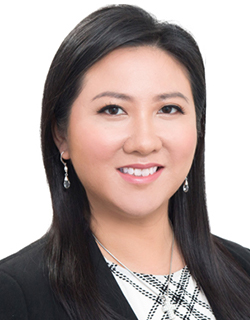The Cayman Islands has transformed itself into a premier offshore financial hub, connecting entrepreneurs and business from across the world, and large pools of investable capital. In this series, top law firms from the region explore emerging trends and provide insights into the regulatory framework in the islands
The Cayman Islands continues to be one of the most popular offshore jurisdictions for the Asian finance industry, and exempted Limited Partnerships (ELPs) remain the private equity fund vehicle of choice. The use of a Cayman Limited Liability Company (LLC) as a business vehicle has also increased steadily over the years since its introduction in 2016, as fund managers and investors become more familiar with its features, which are based on the Delaware LLC.
Cayman LLCs are most commonly used as joint venture vehicles, carried interest vehicles, downstream blockers and investment management vehicles. They have also been used by Asian fund managers as investor-facing fund vehicles.

Partner, Corporate
Appleby in Hong Kong
Tel: +852 2905 5760
Email: fchan@applebyglobal.com
There are dozens of Chinese funds that manage US$1 billion or more, and the Cayman Islands provides the international recognition that many of these managers are looking for. The Cayman Islands is well known for its stringent and effective Anti-Money Laundering (AML) and Data Protection Law (DPL) regimes, which are compliant with international standards. Additionally, Cayman Islands vehicles are often preferred due to the speed of incorporation. A Cayman Islands fund can launch quickly and formation is cost-effective in comparison to other jurisdictions.
Some have suggested that the introduction of the Variable Capital Company (VCC) in Singapore in 2019 created a competitor for the Cayman Islands, with its ability to create a legal entity form or structure for all types of investment funds. In particular, certain features of the VCC seem to be similar to those of Cayman segregated portfolio companies.
Despite growing interest from industry players in Singapore and a heavy push from the Monetary Authority of Singapore, VCCs are still in their infancy, so the full impact is yet to be seen. In contrast, the Cayman Islands Mutual Funds Law has been enacted for a number of years, and overall is better established and flexible to the needs of Asian fund managers. It will be interesting to watch how VCCs are adopted in 2020, and whether they are utilized more widely in the region.
Forms of facility lines
As with the past few years, subscription facilities, together with capital call security, continued to dominate the fund finance industry in Asia in 2019. These were traditionally developed as short-term bridging facilities to funds pending receipt of capital contributions from investors, which may often take as long as 15 days to arrive following a capital call.
The availability of subscription facilities allows the funds to better manage their cash flow. The rights to call for uncalled capital are contractual and subject to assignment by way of security. The security package will typically include security over designated bank accounts under the control of the lending institutions into which investors deposit their capital contributions. The popularity of subscription facilities means that perfection over capital call rights by way of delivery of written notice of the grant of security to investors has been generally accepted in the market, as with the form of such notice.
In the past year the author has seen more discussions over the use of other forms of facilities in fund financing, though none seem to have developed in a significant way. Hybrid facilities, for instance, have been hailed to combine features of subscription facilities and net asset value facilities, backed by security over assets of the funds in addition to unfunded commitments of the investors.
Hybrid facilities can be useful for non-standard structures, but have not become commonplace due to complications in underwriting two distinct types of facilities. While hybrid facilities have been used more often in the US market, the uptake remains small in the Asian market, and it is yet to be seen whether facilities other than subscription line will gain in popularity in the year ahead.
Changing climate
The Cayman Islands is committed to keeping pace with global regulatory standards, for example the recent updates to their AML and DPL regimes, and to economic substance regulations. This ensures the jurisdiction is well placed to adhere to today’s legal and global regulatory demands, and adapt to changing climates as they transpire, to support the Asian economy.
While investment funds are not required to comply with economic substance requirements, entities that conduct fund management business are. The pool of fund managers who are subject to economic substance requirements has been widened following recent amendments to the Securities Investment Business Law of the Cayman Islands.
The amendments replace the concept of an “excluded person” with that of a “registered person”. Currently, a registered “excluded person” cannot continue to carry on any securities investment business after 15 January 2020, unless by that date they have been re-registered by the Cayman Islands Monetary Authority as a “registered person”, or have been granted a licence under section 6 of the Securities Investment Business Law (2019 Revision).
Furthermore, if the “registered person” is a company incorporated under the Companies Law (2018 Revision), it is required to have a minimum of: (1) two directors who are individuals; or (2) one corporate director. Each of the above must comply with the Directors Registration and Licensing Law, 2014.
One implication of the amendments is that an “excluded person” who had originally fallen outside the remit of the economic substance legislation will now be brought back into the regime by virtue of its re-registration as a “registered person”. They will now become subject to economic substance requirements from 15 January 2020. This may potentially capture many fund managers in Asia who are currently registered as “excluded persons”. They will also be subject to a number of requirements under the supervision and powers of the Cayman Islands Monetary Authority.
Starting in 2020, a relevant entity will be required to file a notice with the Cayman Tax Information Authority stating whether it is carrying out any relevant activity, and, if so, whether all or any part of the relevant entity’s gross income is subject to tax in a jurisdiction outside Cayman (with supporting evidence), and the end date of the entity’s financial year.
The market trend shows an increase in funds and managers reviewing the level of discretion that the managers possess to manage securities, and reviewing the possibility of outsourcing these arrangements. Contractual terms such as those contained in limited partnership agreements should be reviewed carefully to reflect any factual changes and the revised scope of work. Hopefully the market will have a clearer view on the decisions and overall trend of fund managers in this regard after the re-registration deadline.
2019 has been an eventful year for the fund finance industry; in addition to the introduction of the VCC in Singapore, there have been considerable developments in the legislative and regulatory regimes with an impact on funds, managers, investors and lenders alike.
Despite the uncertainties in the geopolitical environment, the author remains optimistic about the forecast for the Asia fund financing industry and the continuous prominence of Cayman fund structures in 2020. The author expects to see lenders becoming more open to exploring bespoke financing options such as net asset value or hybrid facilities, in addition to the usual subscription facilities currently utilized.

APPLEBY HONG KONG OFFICE
2206-19 Jardine House,
1 Connaught Place, Central, Hong Kong
Tel: +852 2523 8123 Fax: +852 2524 5548
Email: hkinfo@applebyglobal.com
www.applebyglobal.com

































